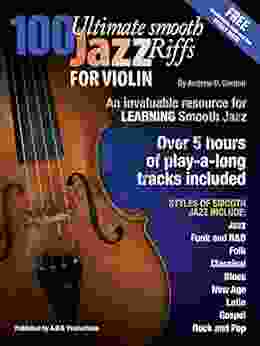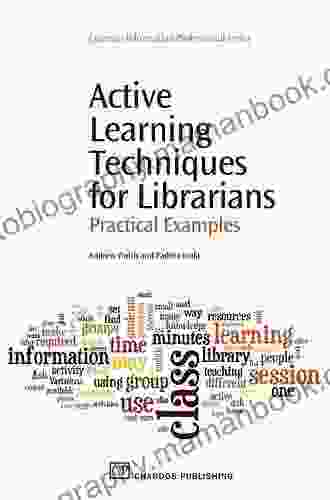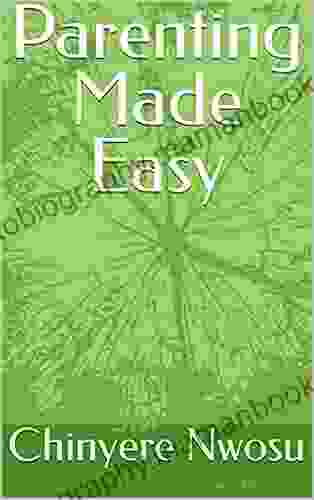Instructional Strategies and Techniques for Information Professionals: A Comprehensive Guide to Enhancing Learning Outcomes

In the rapidly evolving digital landscape, the role of information professionals has become increasingly crucial. These professionals serve as gatekeepers of knowledge, providing vital information services to various stakeholders, including researchers, students, businesses, and the general public. To fulfill this role effectively, information professionals require a diverse range of skills and competencies, including the ability to design and deliver engaging and effective instructional materials.
This comprehensive guide explores the essential instructional strategies and techniques that information professionals can employ to enhance learning outcomes for their target audience. We will delve into the cognitive, behavioral, and social dimensions of learning, examining how different strategies cater to the diverse learning styles and preferences of learners. Furthermore, we will provide practical examples and case studies to illustrate the implementation and effectiveness of each strategy.
Before exploring specific instructional strategies, it is essential to understand the fundamental principles of the learning process. Cognitive science has identified several key cognitive processes involved in learning, including:
4.3 out of 5
| Language | : | English |
| File size | : | 3347 KB |
| Text-to-Speech | : | Enabled |
| Screen Reader | : | Supported |
| Enhanced typesetting | : | Enabled |
| X-Ray | : | Enabled |
| Word Wise | : | Enabled |
| Print length | : | 86 pages |
| Lending | : | Enabled |
| Paperback | : | 32 pages |
| Item Weight | : | 4.8 ounces |
| Dimensions | : | 8.5 x 0.25 x 11.5 inches |
- Attention: The ability to focus on and process relevant information.
- Memory: The ability to store and retrieve information over time.
- Comprehension: The ability to understand and interpret information.
- Transfer: The ability to apply learned knowledge and skills to new situations.
Instructional strategies should aim to support these cognitive processes by providing learners with opportunities to:
- Engage with the material in a meaningful way.
- Practice and apply their knowledge.
- Reflect on their learning.
- Receive feedback and support.
A wide range of instructional strategies can be employed by information professionals to enhance learning outcomes. Here are some of the most effective strategies:
Active learning strategies engage learners in the learning process by requiring them to actively participate in the construction of knowledge. These strategies include:
- Discussion-based learning: Encouraging learners to engage in discussions, debates, and group projects to explore and critically examine different perspectives.
- Problem-based learning: Presenting learners with real-world problems and guiding them through the process of finding solutions.
- Experiential learning: Providing learners with opportunities to apply their knowledge and skills in practical settings, such as internships and field trips.
Technology can be a powerful tool for enhancing learning. Information professionals can leverage technology to:
- Create interactive learning materials: Developing online courses, simulations, and games that engage learners and provide opportunities for practice and feedback.
- Provide personalized learning experiences: Using adaptive learning platforms that tailor content and activities to individual learners' needs.
- Foster collaboration: Utilizing online forums, discussion boards, and social media to connect learners and facilitate knowledge sharing.
Learner-centered strategies focus on the individual needs and preferences of learners. These strategies include:
- Universal Design for Learning (UDL): Creating learning environments and materials that accommodate a wide range of learning styles and abilities.
- Scaffolding: Providing support and guidance to learners as they gradually develop their skills and knowledge.
- Self-paced learning: Allowing learners to progress through learning materials at their own pace.
Assessment is an essential component of the learning process as it provides learners with feedback on their progress and helps instructors identify areas for improvement. Effective assessment strategies include:
- Formative assessment: Providing ongoing feedback to learners during the learning process to identify strengths and weaknesses.
- Summative assessment: Assessing learners' overall knowledge and skills at the end of a unit or course.
- Self-assessment: Allowing learners to reflect on their own learning and identify areas for growth.
A university library implemented a discussion-based learning approach in its information literacy instruction sessions. Instead of delivering lectures, librarians facilitated discussions on research topics, encouraging students to actively participate in exploring different perspectives and sharing their knowledge. By engaging learners in the learning process, the library increased student attendance, participation, and overall learning outcomes.
Instructional strategies and techniques are essential tools for information professionals who aim to enhance learning outcomes for their target audience. By understanding the cognitive, behavioral, and social dimensions of learning, and by employing a diverse range of strategies that cater to different learning styles and preferences, information professionals can create effective and engaging learning experiences.
As the field of information science continues to evolve, new technologies and instructional approaches will emerge. Information professionals must stay abreast of these advancements to ensure that they remain equipped with the skills and knowledge necessary to meet the ever-changing demands of their profession. By embracing innovative instructional strategies, information professionals can empower learners to become critical thinkers, effective researchers, and lifelong learners.
4.3 out of 5
| Language | : | English |
| File size | : | 3347 KB |
| Text-to-Speech | : | Enabled |
| Screen Reader | : | Supported |
| Enhanced typesetting | : | Enabled |
| X-Ray | : | Enabled |
| Word Wise | : | Enabled |
| Print length | : | 86 pages |
| Lending | : | Enabled |
| Paperback | : | 32 pages |
| Item Weight | : | 4.8 ounces |
| Dimensions | : | 8.5 x 0.25 x 11.5 inches |
Do you want to contribute by writing guest posts on this blog?
Please contact us and send us a resume of previous articles that you have written.
 Top Book
Top Book Novel
Novel Fiction
Fiction Nonfiction
Nonfiction Literature
Literature Paperback
Paperback Hardcover
Hardcover E-book
E-book Audiobook
Audiobook Bestseller
Bestseller Classic
Classic Mystery
Mystery Thriller
Thriller Romance
Romance Fantasy
Fantasy Science Fiction
Science Fiction Biography
Biography Memoir
Memoir Autobiography
Autobiography Poetry
Poetry Drama
Drama Historical Fiction
Historical Fiction Self-help
Self-help Young Adult
Young Adult Childrens Books
Childrens Books Graphic Novel
Graphic Novel Anthology
Anthology Series
Series Encyclopedia
Encyclopedia Reference
Reference Guidebook
Guidebook Textbook
Textbook Workbook
Workbook Journal
Journal Diary
Diary Manuscript
Manuscript Folio
Folio Pulp Fiction
Pulp Fiction Short Stories
Short Stories Fairy Tales
Fairy Tales Fables
Fables Mythology
Mythology Philosophy
Philosophy Religion
Religion Spirituality
Spirituality Essays
Essays Critique
Critique Commentary
Commentary Glossary
Glossary Bibliography
Bibliography Index
Index Table of Contents
Table of Contents Preface
Preface Introduction
Introduction Foreword
Foreword Afterword
Afterword Appendices
Appendices Annotations
Annotations Footnotes
Footnotes Epilogue
Epilogue Prologue
Prologue William Gaddis
William Gaddis Andrew Barron
Andrew Barron Edward Gross
Edward Gross Rudyard Kipling
Rudyard Kipling Rollo Tomassi
Rollo Tomassi Rachel Winston
Rachel Winston Tom Wainwright
Tom Wainwright G Lawrence
G Lawrence Jenny Lewis
Jenny Lewis Ruth Welburn
Ruth Welburn Lene Andersen
Lene Andersen Deborah D Stewart
Deborah D Stewart Crystal Senter Brown
Crystal Senter Brown Kory M Shrum
Kory M Shrum Christian Raymond
Christian Raymond Katarina Cermelj
Katarina Cermelj Hassan Saiyed
Hassan Saiyed Ava Benton
Ava Benton Melissa Storm
Melissa Storm Emma Mak
Emma Mak
Light bulbAdvertise smarter! Our strategic ad space ensures maximum exposure. Reserve your spot today!

 Howard PowellThe Retail Entrepreneur's Guide to Reducing Stress, Having Fun, and Making...
Howard PowellThe Retail Entrepreneur's Guide to Reducing Stress, Having Fun, and Making...
 Camden MitchellA Literary Tapestry: Unveiling Our Collection of Short Stories and Newspaper...
Camden MitchellA Literary Tapestry: Unveiling Our Collection of Short Stories and Newspaper... Ernest ClineFollow ·18.9k
Ernest ClineFollow ·18.9k Christian CarterFollow ·10.5k
Christian CarterFollow ·10.5k Wade CoxFollow ·5.6k
Wade CoxFollow ·5.6k Camden MitchellFollow ·17.3k
Camden MitchellFollow ·17.3k Joshua ReedFollow ·15.6k
Joshua ReedFollow ·15.6k Douglas FosterFollow ·17.8k
Douglas FosterFollow ·17.8k Bret MitchellFollow ·12.8k
Bret MitchellFollow ·12.8k David PetersonFollow ·9.2k
David PetersonFollow ·9.2k

 Oscar Bell
Oscar BellDream Keeper II by Parris Afton Bonds: An Exploration of...
Dream Keeper II by Parris...

 Eric Hayes
Eric Hayes100 Ultimate Smooth Jazz Riffs For Violin: Elevate Your...
Welcome to the ultimate...

 Vernon Blair
Vernon BlairAll You Need to Know to Start Investing and Trading...
Binance is...

 Greg Foster
Greg FosterShalott: Into the Unknown
In the heart of medieval...

 Will Ward
Will WardMoney Making Money Instead of You Working: Unleashing the...
In a world where...
4.3 out of 5
| Language | : | English |
| File size | : | 3347 KB |
| Text-to-Speech | : | Enabled |
| Screen Reader | : | Supported |
| Enhanced typesetting | : | Enabled |
| X-Ray | : | Enabled |
| Word Wise | : | Enabled |
| Print length | : | 86 pages |
| Lending | : | Enabled |
| Paperback | : | 32 pages |
| Item Weight | : | 4.8 ounces |
| Dimensions | : | 8.5 x 0.25 x 11.5 inches |










